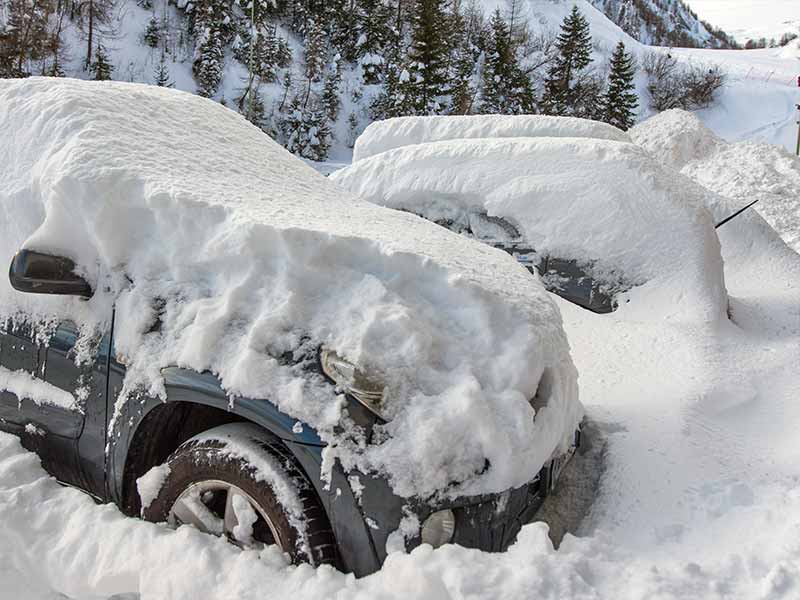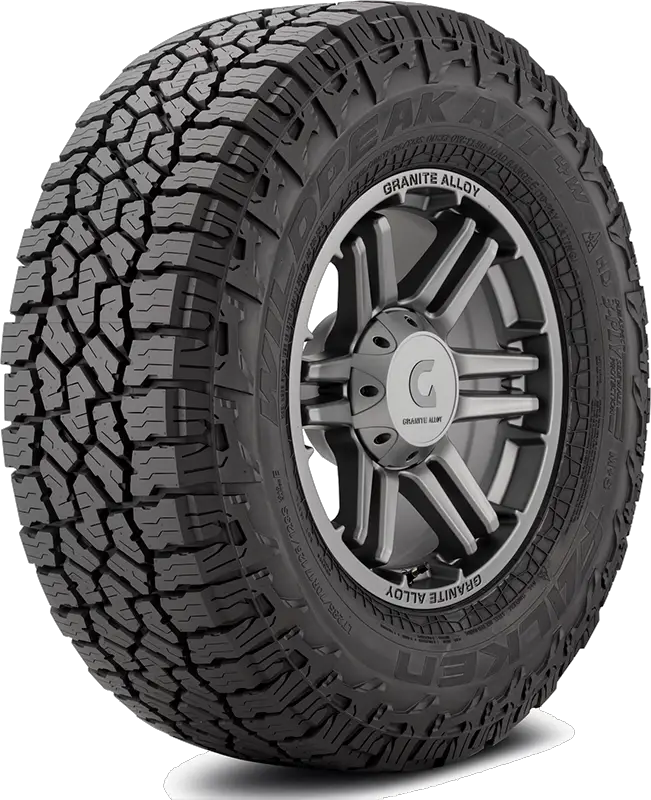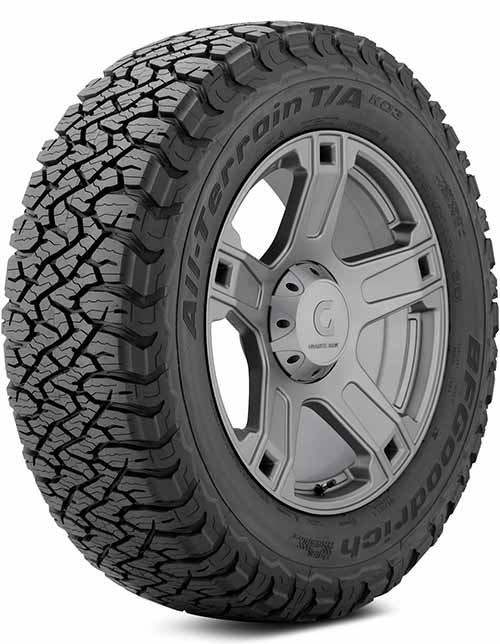Are snow tires truly worth the investment and seasonal hassle? Discover the comprehensive breakdown that addresses whether these specialized tires truly make a difference in winter conditions, helping you make an informed decision for safer winter driving.
Are Snow Tires Worth It?
Yes, snow tires significantly enhance traction and safety on snow-covered roads and in cold weather, providing superior performance compared to all-season or summer tires.
Your decision to buy winter tires should depend on how severe the winter season is in your area. All season tires are good for milder winter weather, but when dealing with frequent harsh snowy conditions, a winter tire with its softer rubber compounds will perform much better.
In this article, we delve deep into the realm of winter tires, exploring their effectiveness in winter driving conditions, their impact on different types of drivetrains, the feasibility of using winter tires year-round, the financial considerations involved, and whether tire chains can substitute for snow tires. We aim to provide clear and straightforward insights to guide your tire choices for safer and more confident winter driving.
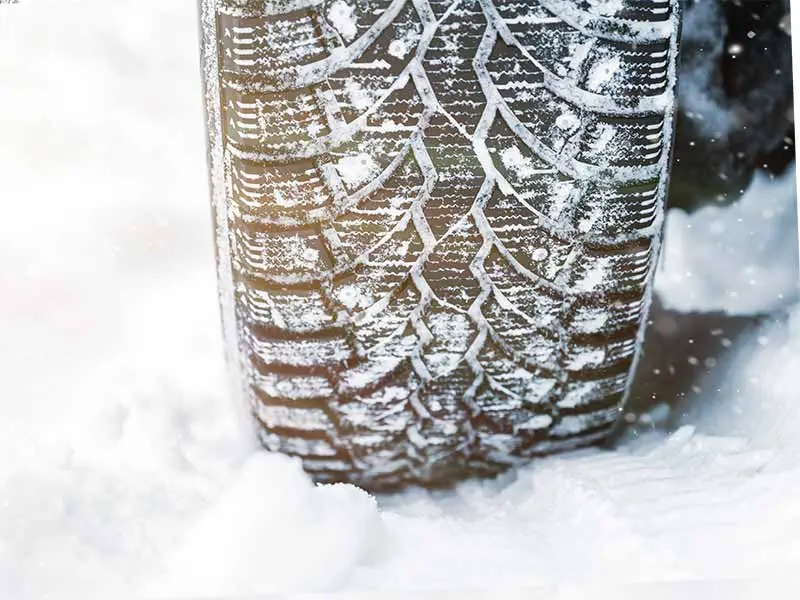
Do Snow Tires Make a Difference?
The difference that winter tires make in winter driving conditions cannot be overstated. Their specialized design significantly improves traction, grip, and overall safety when compared to all-season or summer tires. Whether cruising along snow-covered roads or navigating icy terrains, the benefits of winter tires are evident.
Let’s delve into this question to provide you with a comprehensive understanding.
The Purpose of Winter Tires
Winter tires, also known as snow tires, are specifically designed to tackle cold weather conditions, particularly snow-covered roads and icy surfaces. Here’s why they matter:
- Specialized Tread Patterns: One of the key features distinguishing winter tires from all-season or summer tires is their tread pattern. They’re engineered with deeper treads, unique siping, and specialized rubber compounds that remain pliable in cold temperatures.
- Enhanced Grip: The tread design of winter tires allows them to bite into snow and ice, providing better traction. This enhanced grip is critical for maintaining control and stability, especially when roads are slippery.
Understanding the Difference
To truly comprehend the difference between winter tires and other types, it’s essential to consider their performance in various conditions:
- Winter Conditions: When temperatures drop below 45°F (7°C) and roads become snow-covered or icy, winter tires excel. Their design helps vehicles maintain traction and grip, reducing the risk of skidding or losing control.
- Comparison to All-Season Tires: While all-season tires offer versatility across different weather conditions, they’re not as effective in extreme winter conditions. Even all weather tires, the more winter-optimized version of all season tires, are no match when compared to a winter tire. The tread pattern and rubber compound of all-season tires lack the specialized features necessary for optimal performance in snow and ice.
Scientific Backing for Winter Tires
Numerous studies and real-world tests back up the effectiveness of winter tires:
- According to a study by the Rubber Manufacturers Association (RMA), winter tires can reduce stopping distances on snow by a significant margin compared to all-season tires.
- Real-world tests conducted by various automotive organizations consistently demonstrate the superior performance of winter tires in winter weather conditions, emphasizing their value for safety.

Cost Considerations and Worth of Winter Tires
I understand the problems many people face when considering the investment in winter tires. The decision to purchase and maintain a separate set of winter tires involves costs and logistical aspects that are worth thinking through.
Initial Investment and Additional Expenses
Let’s break down the expenses associated with winter tires:
- Cost of Winter Tires: Purchasing a set of winter tires is an initial expense. These tires, specifically designed for cold weather conditions, might initially seem like an added cost but are a critical investment for safety in winter driving.
- Extra Wheels: To avoid the hassle of seasonal tire changes, investing in an additional set of wheels for mounting winter tires can incur additional expenses. Steel wheels are often favored for winter tire setups due to their durability and cost-effectiveness.
Seasonal Swaps and Long-Term Savings
Consider these factors regarding seasonal tire changes and long-term savings:
- Cost of Swapping Tires: Swapping between winter and all-season/summer tires twice a year involves service fees unless done independently. While it incurs a cost, the safety and performance benefits during respective seasons are undeniable.
- Long-Term Value: Despite the initial expenses, the durability and longevity of having separate sets of tires mean each set wears less over time, potentially extending the lifespan of both sets. This aspect contributes to long-term savings.
Evaluating the Worth of Winter Tires
Determining the worth of winter tires involves weighing costs against tangible benefits:
- Enhanced Safety: Winter tires significantly improve traction and handling in cold weather conditions, reducing the risk of accidents or skidding. This enhanced safety aspect is invaluable.
- Potential Savings: While the upfront costs may seem substantial, the long-term benefits in terms of safety, reduced wear on tires, and potentially fewer accidents could lead to cost savings.
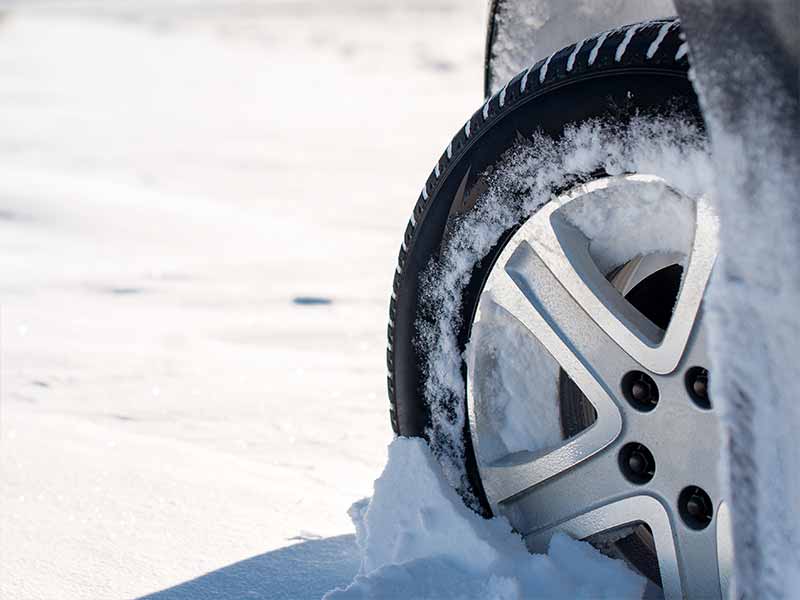
Impact of Winter Tires on Different Types of Drivetrains
No matter your vehicle’s drivetrain, equipping it with winter tires remains a critical safety measure during winter driving. Each drivetrain configuration benefits from the enhanced traction and grip that winter tires offer in challenging weather conditions.
However, I can affirm that the impact of winter tires varies depending on whether your vehicle is front wheel drive (FWD), rear wheel drive (RWD), or all wheel drive (AWD).
Do Winter Tires Make A Difference In FWD?
For FWD vehicles, where the power is primarily directed to the front wheels, the role of winter tires is crucial:
- Enhanced Traction: Winter tires significantly improve the grip of FWD vehicles on snow and ice-covered roads, helping with acceleration and maintaining control while turning or braking.
- Balanced Handling: The improved traction allows FWD vehicles to navigate challenging winter conditions more confidently, reducing the risk of skidding or losing control.
Do Winter Tires Make A Difference In RWD?
RWD vehicles, where the power is directed to the rear wheels, often face challenges in slippery conditions, but winter tires can make a notable difference:
- Improved Stability: Winter tires on RWD vehicles enhance traction and stability, mitigating the tendency for the rear wheels to lose grip, especially during acceleration or when maneuvering on snow or ice.
- Enhanced Braking: With winter tires, RWD vehicles experience better braking performance on wintry surfaces, reducing stopping distances and enhancing overall safety.
Do I Need Snow Tires With AWD?
While AWD vehicles inherently distribute power to all wheels, the misconception that they don’t require winter tires persists. Here’s why winter tires matter for AWD vehicles:
- Optimized Traction: Even with power distributed to all wheels, AWD vehicles equipped with winter tires exhibit significantly improved traction and grip, ensuring better overall performance in snowy or icy conditions.
- Enhanced Control: The combination of AWD and winter tires provides a balanced and controlled driving experience, improving handling and reducing the risk of slippage.
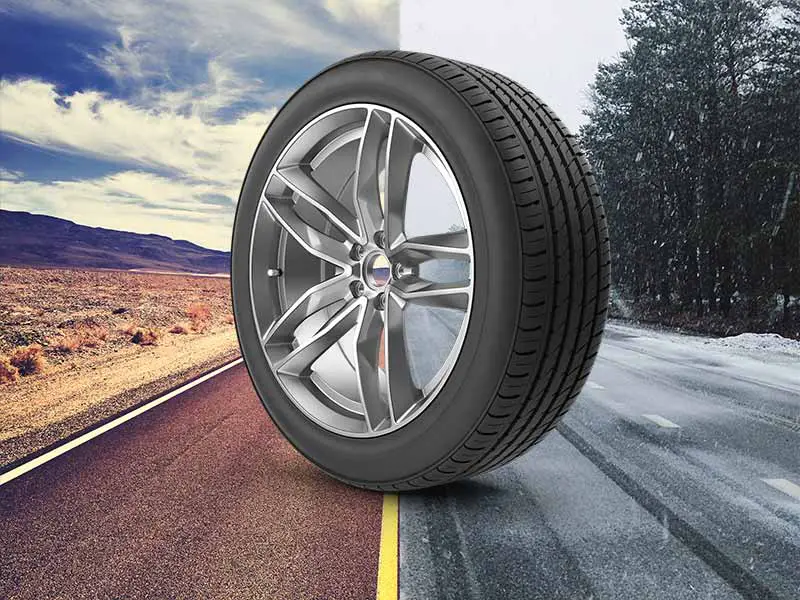
Can You Use Winter Tires All Year?
The reality is that while snow tires excel in winter conditions, using them throughout the year may not be the most optimal choice for several reasons.
Regularly swapping between winter, all-season, or summer tires according to seasonal changes is the best practice for optimal performance, safety, and tire longevity.
Winter Tires in Non-Winter Conditions
Here’s what happens when winter tires are used outside their intended season:
- Accelerated Wear: The rubber compounds used in winter tires remain soft in cold temperatures but can wear out faster in warmer weather. Using them in higher temperatures can lead to faster tread wear and reduced tire lifespan.
- Reduced Performance: Winter tires are engineered for cold conditions and excel in snow, ice, and low temperatures. However, their performance diminishes in dry and warm conditions, leading to decreased traction and handling capabilities.
Importance of Seasonal Switching
The key to maximizing tire performance and safety lies in seasonal switching:
- Summer Tires in Warm Weather: Opting for summer tires during warmer months ensures better performance and longevity. Summer tires have a harder rubber compound designed for warm conditions, providing improved handling and braking on dry and wet roads.
- All-Season Tires as a Compromise: For those seeking a more convenient solution, all-season tires offer a compromise between winter and summer tires. While they may not perform as well as dedicated winter tires in snow and ice or summer tires in hot weather, they provide satisfactory performance across different seasons.
For further insights into seasonal tire choices and considerations, delve into resources like Do Snow Tires Work on Dry Roads? and Do You Need Snow Tires on All 4 Wheels? to gain a deeper understanding of the impact of tire choices on different road conditions.
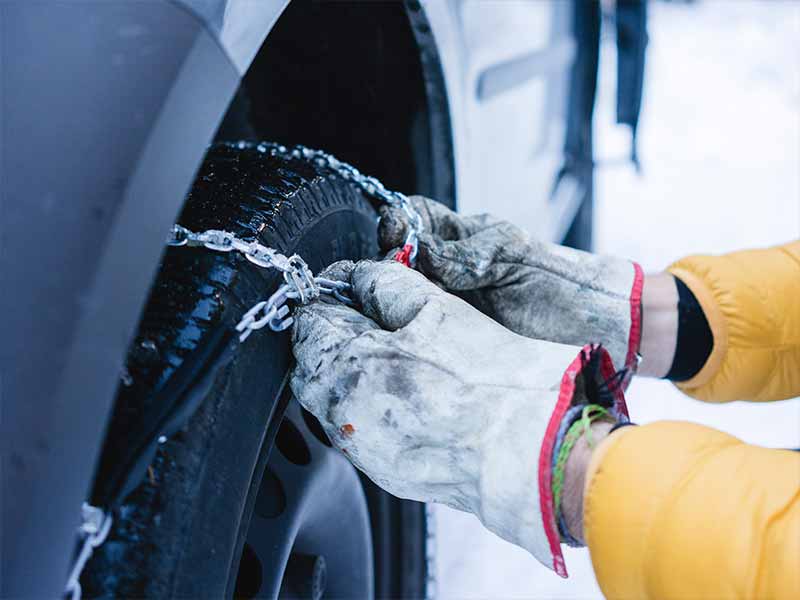
Can I Use Chains Instead of Snow Tires?
Tire chains can improve traction in severe winter conditions, but they are not a direct substitute for the overall performance and versatility of snow tires. Rather than viewing them as interchangeable options, they can serve as complementary solutions for specific situations, with snow tires remaining the preferred choice for overall safety and performance in varied winter driving conditions.
Understanding Tire Chains
Tire chains, also known as snow chains, are devices composed of metal links that wrap around the tire tread to enhance traction in snow or ice. While they provide additional grip on slippery surfaces, it’s essential to recognize their limitations compared to snow tires:
- Limited Application: Tire chains are typically recommended for use in severe winter conditions, especially in mountainous or extremely icy terrains, where traction is a primary concern.
- Installation and Removal: Installing and removing tire chains can be a cumbersome and time-consuming process, requiring proper technique and physical effort. Improper installation may damage the vehicle or tires.
Chains vs. Snow Tires
Despite their effectiveness in certain conditions, tire chains have distinct differences and limitations compared to snow tires:
- Traction Differences: While tire chains enhance traction significantly on ice and packed snow, they may not provide the same level of performance as snow tires on various winter road surfaces.
- Ride Comfort and Handling: Chains can create a rougher ride, increase noise levels, and affect handling characteristics. Conversely, snow tires are designed to provide more comfort and stability in cold weather conditions.
Legal Restrictions and Road Damage
Additionally, it’s crucial to consider legal regulations and potential road damage when using tire chains:
- Legal Requirements: Some regions have specific laws regulating the use of tire chains, limiting their application to certain roads or situations. Failure to adhere to these regulations may result in fines or penalties.
- Road Damage Risk: Improperly installed or worn tire chains can damage road surfaces, especially on asphalt. This potential for road damage is a factor to consider when deciding between chains and snow tires.
Resources
Below are some links you may find helpful when learning about tires:
Final Thoughts
Choosing the right tires, especially for winter driving, is crucial for safety and performance on the road. Winter tires, with their specialized design for cold weather conditions, significantly enhance traction and handling, proving their worth in snowy and icy terrains. Understanding their impact on different drivetrains, considering the financial aspects, and acknowledging their complementarity with tire chains offers a comprehensive perspective for making informed decisions.
Ultimately, prioritizing safety by investing in winter tires tailored to handle the challenges of winter driving can significantly contribute to a secure and confident driving experience during the colder months.
Good luck and happy motoring.
